Arthritis can turn simple daily tasks into a painful struggle, but did you know that what’s on your plate could be making things worse?
Certain foods fuel inflammation, increase joint pain and even speed up cartilage damage. If you’re unknowingly eating these culprits, you might be worsening your symptoms without realizing it.
The good news? Avoiding these inflammatory foods and swapping them for arthritis-friendly alternatives can help ease discomfort and improve mobility.
Let’s dive into the worst offenders that could be sabotaging your joints and what you should eat instead.
1. Sugar and Sweets
Refined sugars trigger the release of pro-inflammatory cytokines, which worsen joint pain and swelling.
A study in The American Journal of Clinical Nutrition found that consuming sugary drinks increases inflammation markers in just a few weeks.
Plus, sugar spikes insulin levels, which contributes to weight gain, another major factor that worsens arthritis symptoms.
What to eat instead: Swap refined sugars for natural sweeteners like honey or stevia, and choose fruits like berries, which contain anti-inflammatory antioxidants.

2. Processed and Red Meats
Bacon, sausages, and even your favorite burger may be fueling arthritis flare-ups. These meats contain high levels of advanced glycation end products (AGEs), which increase oxidative stress and inflammation in the body.
Research from Arthritis Research & Therapy suggests that frequent consumption of processed meats is linked to higher arthritis severity.
What to eat instead: Opt for lean proteins like fish and chicken or plant-based sources like lentils and beans. Fatty fish, such as salmon and mackerel, are especially beneficial due to their high omega-3 content, which fights inflammation.
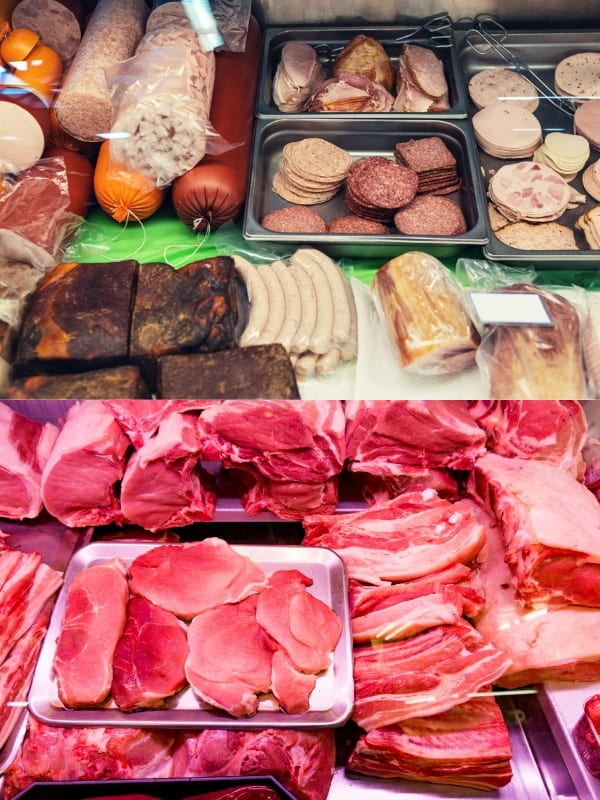
3. Fried and Fast Foods
French fries, fried chicken, and other deep-fried goodies may taste delicious, but they wreak havoc on your joints. These foods are loaded with trans fats and omega-6 fatty acids, which promote chronic inflammation.
A study published in The Journal of Nutrition found that people who consumed more fried foods had higher levels of inflammatory markers linked to arthritis.
What to eat instead: Bake or air-fry foods instead of deep-frying. Incorporate healthy fats from avocados, nuts, and olive oil to reduce inflammation naturally.

4. Dairy Products
Milk, cheese, and butter contain casein, a protein that can trigger inflammation in some people with arthritis. While dairy is beneficial for bone health, certain individuals find that it exacerbates joint pain.
A review in The Journal of Nutrition & Metabolism found that some arthritis patients experienced symptom relief after eliminating dairy.
What to eat instead: If dairy worsens your symptoms, try almond, oat, or soy milk as alternatives. Increase your calcium intake from leafy greens, almonds, and fortified plant-based products.
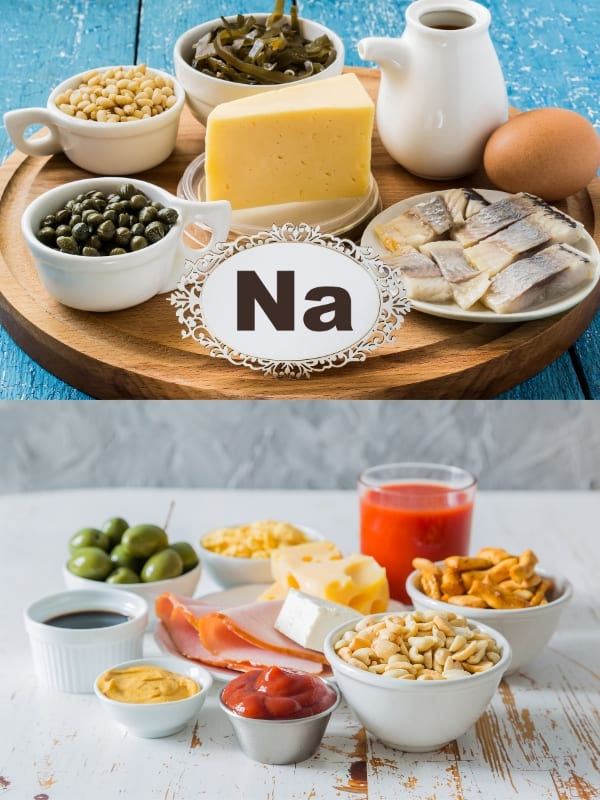
5. White Flour and Refined Grains
White bread, pasta, and pastries made from refined grains spike blood sugar levels, leading to increased inflammation and joint pain. They lack fiber and essential nutrients, making them a poor choice for overall health.
A study in The Journal of Inflammation showed that refined grains contribute to inflammatory responses, worsening arthritis symptoms.
What to eat instead: Choose whole grains like quinoa, brown rice, and whole wheat bread, which are packed with fiber and beneficial nutrients.
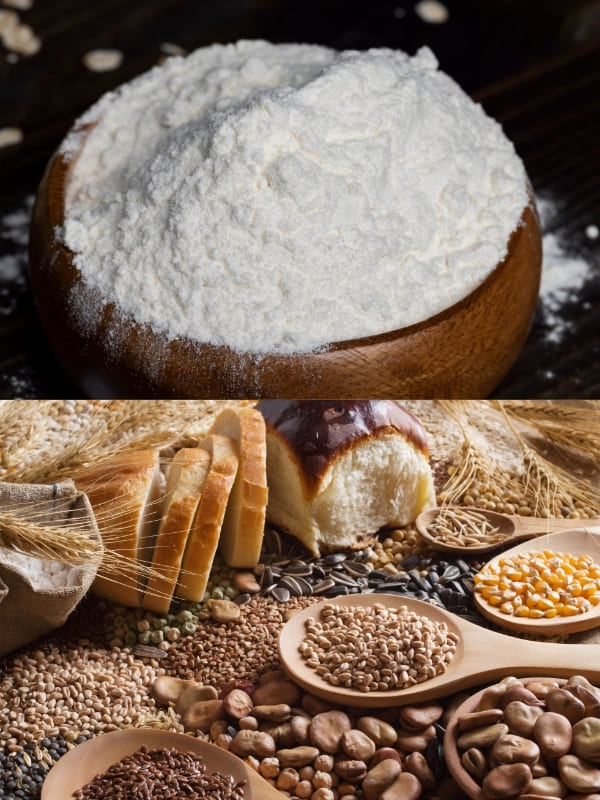
6. Alcohol
Alcohol, especially beer, contains purines, which break down into uric acid, a key factor in gout attacks. Even moderate alcohol consumption has been linked to increased inflammation and a higher risk of developing arthritis.
According to The Arthritis Foundation, alcohol can interfere with certain arthritis medications, reducing their effectiveness.
What to drink instead: Stick to water, herbal teas, or anti-inflammatory drinks like turmeric milk and green tea to support joint health.

7. Salt and High-Sodium Foods
Excess salt intake leads to water retention, which can increase swelling in joints. Processed foods like canned soups, frozen meals, and chips are loaded with sodium, worsening arthritis symptoms.
A study in Nature Medicine found that a high-sodium diet may contribute to autoimmune diseases, including rheumatoid arthritis.
What to eat instead: Use herbs, garlic, and lemon juice to flavor your food without relying on salt. Opt for fresh, whole foods instead of processed options.

8. Nightshade Vegetables (For Some People)
Tomatoes, eggplants, peppers, and potatoes belong to the nightshade family, which contains solanine, a compound that some people believe worsens arthritis symptoms.
While scientific evidence is mixed, some arthritis sufferers report reduced pain after eliminating nightshades.
What to eat instead: If nightshades trigger symptoms, focus on anti-inflammatory vegetables like broccoli, carrots, and leafy greens.
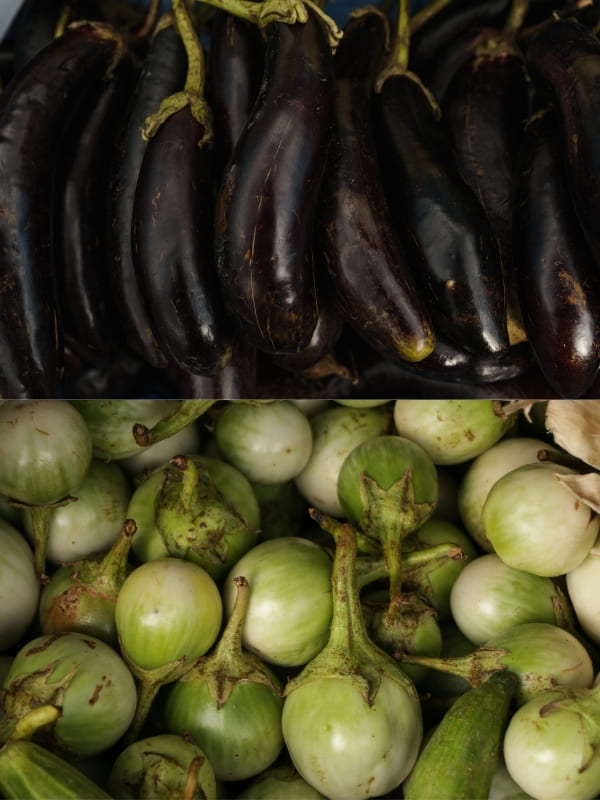
9. Soft Drinks and Sugary Beverages
Sodas and other sugary drinks are loaded with high-fructose corn syrup, which fuels inflammation and contributes to weight gain. A study in BMJ Open found that people who drank sugary beverages daily had a higher risk of developing rheumatoid arthritis.
What to drink instead: Hydrate with water, herbal teas, and homemade smoothies packed with anti-inflammatory ingredients like turmeric, ginger, and berries.

How to Reduce Arthritis Symptoms Through Diet
Now that you know what to avoid, here’s how to build an arthritis-friendly diet:
1. Increase Omega-3s
Found in fatty fish like salmon, mackerel, and sardines, as well as plant-based sources such as chia seeds and walnuts, omega-3s are known for their powerful anti-inflammatory properties.
These healthy fats help reduce joint swelling and stiffness, making them essential for anyone dealing with arthritis.
Studies have shown that regular consumption of omega-3-rich foods can lead to noticeable improvements in mobility and pain reduction over time.
2. Load Up on Antioxidants
Antioxidants are another crucial component of an arthritis-friendly diet. These powerful compounds help fight oxidative stress, which can damage joints and worsen inflammation.
Eating a variety of antioxidant-rich foods, such as berries, leafy greens, and nuts, can provide the body with essential vitamins like vitamins C and E, which support cartilage health and protect against further joint deterioration.
Blueberries, spinach, and almonds are particularly great choices, as they contain high levels of polyphenols and other inflammation-fighting nutrients.
3. Stay Hydrated
Hydration is often overlooked but plays a key role in joint health. Drinking plenty of water helps keep joints lubricated, reducing friction and stiffness.
When the body is dehydrated, cartilage loses its ability to cushion the joints properly, leading to increased discomfort.
Aim to drink at least eight glasses of water per day, and consider consuming water-rich foods like cucumbers, watermelon, and oranges to stay well-hydrated.

4. Use Anti-Inflammatory Spices
Spices can also be powerful allies in reducing arthritis symptoms. Turmeric, ginger, and cinnamon have been used for centuries in traditional medicine due to their strong anti-inflammatory properties.
Turmeric contains curcumin, a compound that has been extensively studied for its ability to reduce joint pain and stiffness.
Ginger works similarly, helping to block inflammatory pathways in the body, while cinnamon has been shown to lower markers of inflammation.
Adding these spices to meals, smoothies, or teas can be an easy and delicious way to support joint health naturally.
5. Eat Whole Foods
Processed foods often contain additives, preservatives, and unhealthy fats that can contribute to inflammation, whereas fresh, nutrient-dense foods provide the vitamins and minerals needed to keep joints healthy.
A diet rich in fresh vegetables, lean proteins, whole grains, and healthy fats will help maintain a balanced inflammatory response and promote overall well-being.
Cautions and Precautions
While dietary changes can significantly improve arthritis symptoms, not all foods affect individuals the same way. Some people tolerate dairy or nightshades well, while others may need to avoid them.
If you have existing medical conditions or are on arthritis medication, consult your doctor before making major dietary changes.
Additionally, sudden dietary shifts can cause digestive discomfort, so transition gradually and track your body’s response.
Disclaimer
This article is for informational purposes only and is not intended to replace professional medical advice. Always consult a healthcare provider before making significant changes to your diet, especially if you have existing health conditions.
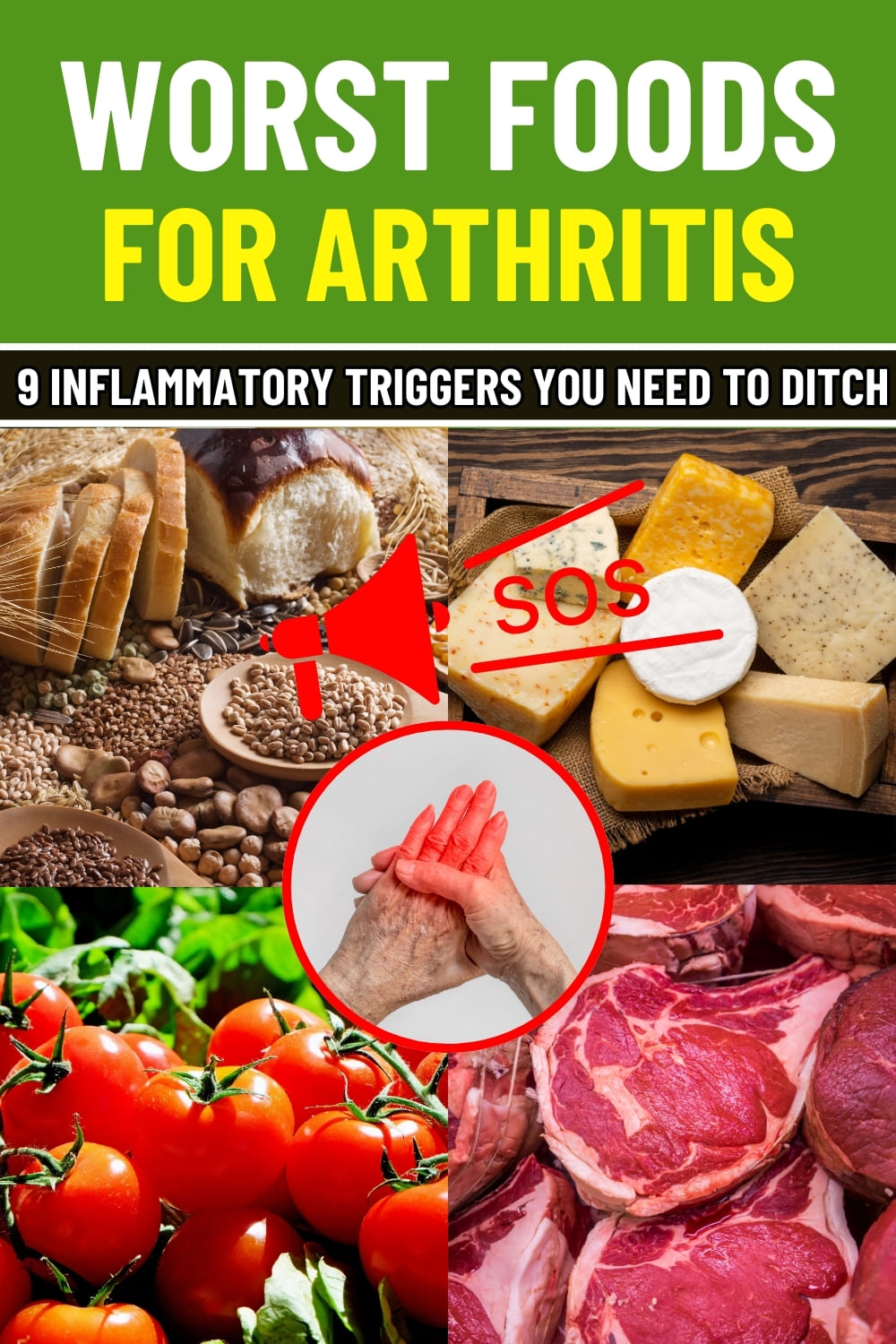
9 Foods to Avoid If You Have Arthritis and What to Eat Instead
